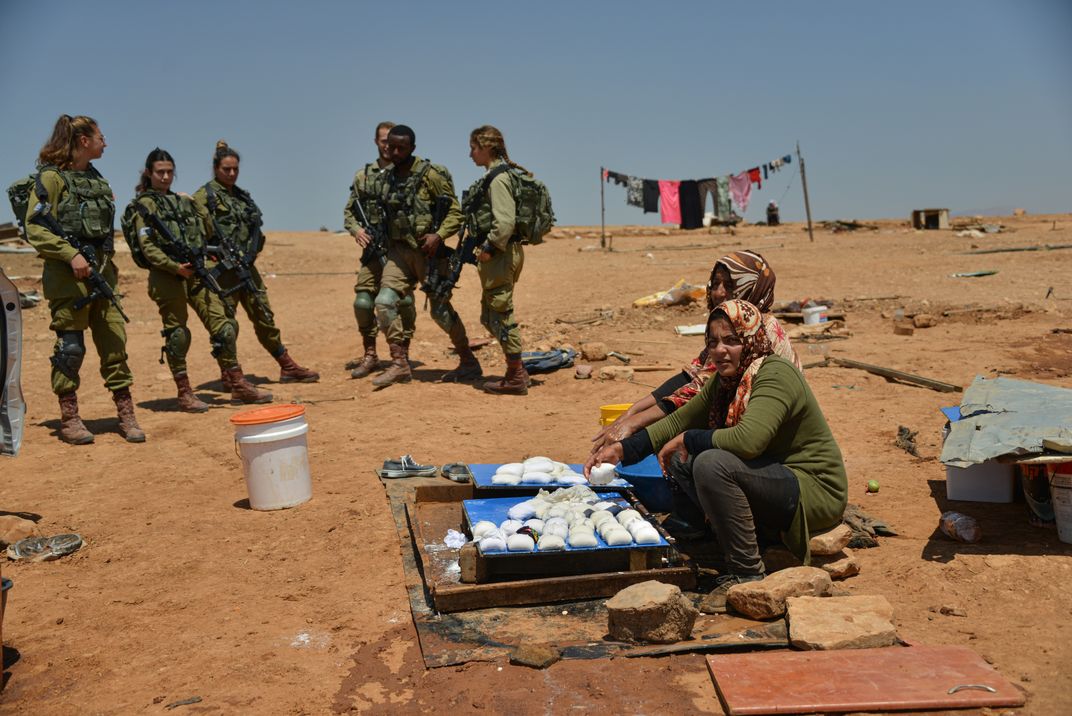Women make cheese wrapped in cloth while being guarded by IDF soldiers on the ruins of their house which was destroyed the day before, in Khirbet Humsah al-Foqa. The village which sits inside a fire zone was partly destroyed six times, though this time the demolition was full. At noon, at 40 degrees Celsius, the IDF removed the residents' tents, took the food and water in their possession, and collected the personal equipment into trucks - including mattresses and toys, and moved it to a hill about 15 km away. The community ran to the hills and slept outdoors - and on the morning after arrived back to where their houses had been, to find massive destruction. Geopolitical conflict between Israel and Palestine is manifested various ways on ground - among them, is the systematic drying process of the Palestinian shepherds communities, at the buffer zones between the Palestinian Authority A zones and the Jewish controlled C zones in the Occupied West Bank. In practice, those are the frontiers of the current (and never-ending) border fixing process in the region. In the war of frontiers, water prevention became a weapon to encourage “voluntary departure” of the Palestinians in the arid terrain. The complementary technique of the dryout, is declaration of vast areas of the frontiers as military fire zones. In Israel borders, including the Occupied West Bank - 39% of the country is defined as a military firezone. Within the West Bank firezones are found mostly on its arid eastern side - 940,000 Dunams, which are 17.2% of the West Bank. The combo of the two creates a vital pressure lever on the communities - whose presence became illegal after the declaration of the firezones post the 1967 war. Water delivery infrastructure construction is illegal. Springwater is pumped from the aquifer, decreasing the sprout used to water the flocks. Springs that still sprout are declared as nature reserves, preventing flocks from reaching. Any usage of concrete outside of Jewish settlements is forbidden - making housing construction illegal, as well as maintenance of traditional water collection systems to ancient cisterns. During army training, residents are requested to leave their houses temporarily. Sometimes, they find their water tanks perforated from IDF bullets. On top of this, Jewish outposts function as catalysts. New outposts keep growing in quantity and size, pushing the shepherds in a need to look for further grazing areas. Jewish settlers' attacks on those communities are a matter of routine. The army, traditionally, protects the Jewish settlers
| Date Taken: | 07.2021 |
| Date Uploaded: | 11.2022 |
| Photo Location: | Palestine |
| Camera: | NIKON D800 |
| Copyright: | © Matan Golan |

